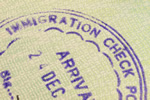Life as an expat digital nomad

Life as an expat digital nomad
Once upon a time there were three categories of expat – working professionals, retirees and low-end economic migrants. Nowadays, a fourth category is bidding to outpace the rest, with the numbers of digital nomads increasing year by year. Most digital nomads are younger, although wanderlust can also grab those who’ve never had the chance to travel worldwide as they were busy earning a living wage in the home country. In some ways, the syndrome resembles the ‘sixties’ exodus to India and other Asian locations, with self-improvement via Eastern mysticism the spur and making a living low on the must-do lists.
Nowadays, the internet rules the younger generations’ lives, giving the perfect excuse to travel to exotic locations, earning as you go, making friends from all five continents and embracing culture unseen by yesterday’s generation of expat professionals. Estonia, the Netherlands, Argentina, Bali, Budapest and even Southeast Asia and China itself are logical destinations for these freestyle travellers, with a stay of several months resulting in enough cash to move on as well as new multinational friends travelling the same roads to the next destination.
The essential requirements for a digital nomadic destination country are a low cost of living, a friendly climate, cultural richness, communities of similarly-minded people and, most important of all, a secure, fast internet connection either in a co-working space or a foreigner-friendly coffee bar. Thailand’s northern province of Chiang Mai is now a favourite, with a few arrivals becoming content enough to stay long-term and start tech businesses. It can be tricky to stay due to issues with Thai immigration, and getting an actual work permit is almost impossible, but the ambience and ease with which the city has adjusted to its digital nomads is attractive enough to encourage new arrivals.
The usual way to stay for a while is the tourist visa plus visa runs at border crossings, for which working isn’t allowed, and the new Smart Visa is aimed at upscale entrepreneurs earning over 200,000 baht per month (£5,000) – unreachable for the average digital nomad wanting to settle for a while in this charming city. Nevertheless, for a short stay of a few months, it’s possible. Popular sectors are graphic or web design, online marketing, copy and content writing, affiliate marketing, software entrepreneurship and consulting as well as playing the financial and stock markets. Although the city isn’t a lifetime destination any more due increasingly onerous immigration requirements, it’s still a great place to chill for a while.
Related Stories:
- Is Kuwaitization the unintended result of the oil price crash? - July 20, 2020
- Expats in Malaysia still banned from overseas travel - July 17, 2020
- HSBC Asia to cut back on internal expat relocations - July 16, 2020
- Tips on integrating for newly-arrived expats - July 15, 2020
Latest News:
- Tips on a trouble-free relocation as an expat overseas - July 20, 2020
- Expats find peace in the covid-19 refuge of Dahab town - July 20, 2020
- Is Kuwaitization the unintended result of the oil price crash? - July 20, 2020
- Expats unhappy abut changes to Korean points-based visa system - July 17, 2020
- Chiang Mai and Bangkok no longer bargain locations for expats - July 17, 2020
- Expats in Malaysia still banned from overseas travel - July 17, 2020
- Vietnam welcomes expats to its safe, affordable lifestyle - July 16, 2020
- Asian tiger economies reach out to expats in Hong Kong - July 16, 2020
- HSBC Asia to cut back on internal expat relocations - July 16, 2020
- Tips on integrating for newly-arrived expats - July 15, 2020


